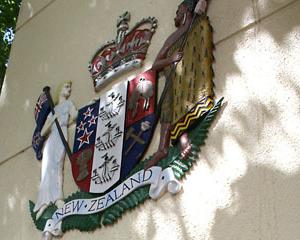
All three family members, all with previously clean records, have now been caught and punished.

She also dealt in smaller amounts of MDMA, or ecstasy.
Her parents, Dianne May Saker, 66, and Kenneth Charles Harris, 73, were both sent home to don ankle bracelets for six months of home detention after being convicted of three cannabis-related charges each.
The details of the family business were laid out in the Napier District Court when the three came before Judge Bridget Mackintosh for sentencing.
Lawyer Leo Lafferty, representing Kenneth, picked up on a statement in his client’s pre-sentence report declaring "blood is thicker than common sense".
"The offending beggars belief, Your Honour," Lafferty said.
"Oh, I agree," Judge Mackintosh replied.
The business began with Courtney-Jayne’s own cannabis habit, and her discovery she could source the drug without having to go to the local gangs in Hawke’s Bay.
When friends and family found out, her little operation began to grow until, in the words of Crown prosecutor Megan Mitchell, it became a sophisticated commercial operation, using encrypted apps for communication, and money-laundering channels.
Mitchell said Courtney-Jayne was the leader of the organisation, managing "employees" and co-ordinating with suppliers outside the Hawke’s Bay region.
The court was told the group purchased 230kg of cannabis for selling on in a four-month period.
The employees included her parents. They stored stock for her, maintained a "float" to finance purchases; sometimes they liaised with suppliers and dealt with customers.
Dianne played the part of delivery driver. Kenneth did the accounts.
But they could not stay free of gang involvement.
Courtney-Jayne had a boyfriend who was patched and, even though she was still running the operation, she ended up having to pay a "tax" to the Mongrel Mob for protection.
Judge Mackintosh said numerous letters testified that Courtney-Jayne Harris was a hard-working person who had made a contribution to the community.
However, she said another part of her life was "a lot more complex".
She became involved with a gang member for a significant time.
Reports showed she had struggled with mental health and had been the victim of abuse on a number of levels.
She had dealt with addiction issues as best she could.
In handing down the home detention sentences for Dianne Saker and Kenneth Harris, Judge Mackintosh told them they had got involved in a "very murky and dangerous and complicated world".
"I don’t know what could have possessed you to get embroiled in all of this," she said.
"I sincerely hope this is the first and last time we have this discussion."
- Ric Stevens, Open Justice reporter









